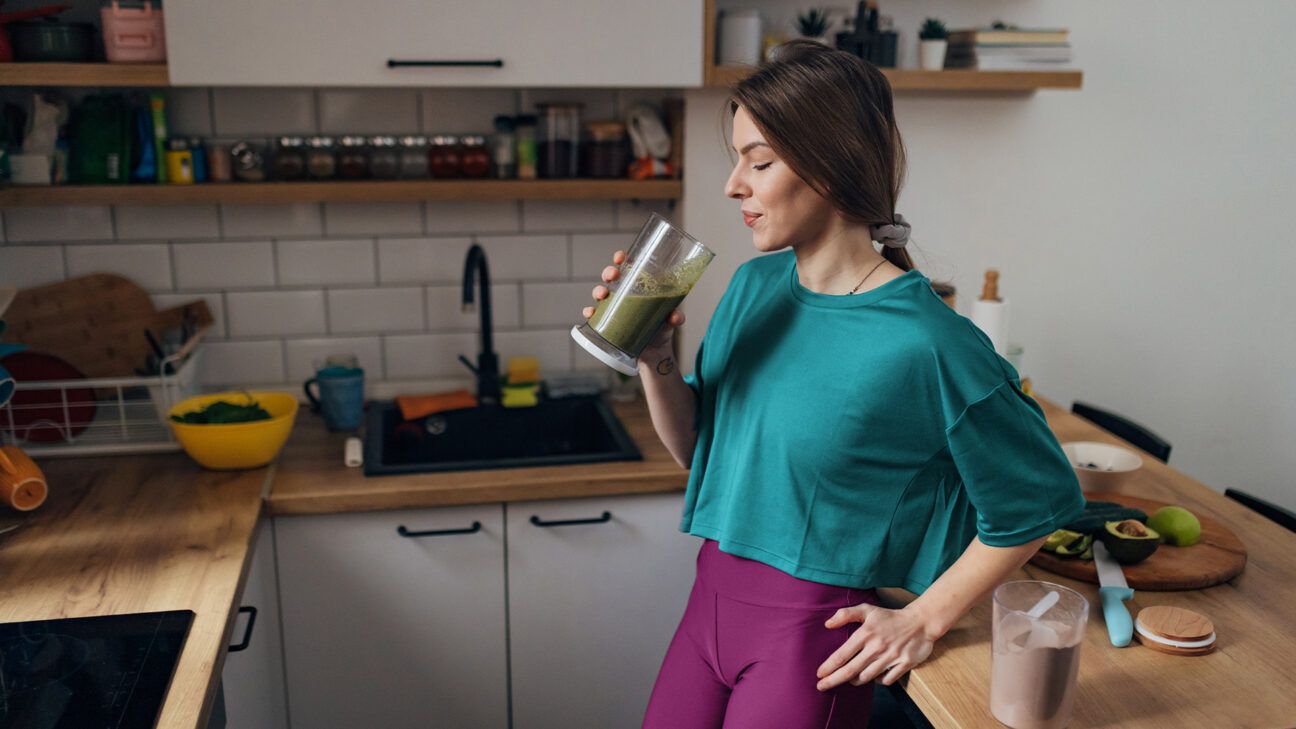Consuming a diet high in protein may aid in weight loss. However, consuming the incorrect amount of protein, not spacing out your protein, and other errors may prevent you from reaching your health goals.

A 2020 review suggested that consuming a high protein diet was one safe and effective tool for weight loss, obesity prevention, and lowering the risks of obesity-related illnesses.
But how much should you consume, and what types and when?
“Many people make mistakes when it comes to their protein intake,” said Andrea Soares, MS, RDN, CSSD, a registered dietitian with Top Nutrition Coaching. “From not eating enough to ignoring plant-based options, these errors can affect health goals.”
Protein needs are personal and based on factors like weight, height, and activity level.
“Expert guidance suggests multiplying your body weight in pounds by anywhere from 0.55 to 0.72 to calculate the grams of protein you need daily,” said Maddie Pasquariello, MS, RDN, a registered dietitian. “If you’re hoping to build muscle, or if you’re an older adult, something on the higher range of this scale is typically recommended. And if you are looking to lose substantial weight, you may want to go a bit lower than this range.”
But you won’t want to go too low.
“If you don’t get enough protein, your body can’t function properly — nearly all reactions in our body require protein,” Pasquariello said.
Pasquariello said common signs you’re not getting enough protein include:
- Snacking more throughout the day
- Constant cravings
- Weakness
- Lethargy
- Difficulties with mood and cognitive function
- Getting sick more frequently
- Brittle hair and nails
Pasquariello said that high protein diets are usually safe if they work for you, you enjoy them, and you are still getting enough of other vital nutrients. However, it’s possible to go overboard.
While a 2023 study didn’t find that high protein diets specifically triggered kidney stones or other diseases, authors did call for longer-term data.
Maria Karalis, RDN, a registered dietitian nutritionist with Fay, said signs you’re consuming too much protein include:
- Constipation (due to lack of fiber)
- Dehydration
- Kidney strain, especially if you have kidney problems already
- Bad breath
- Weight gain
Consulting with your doctor or a registered dietitian can help you determine whether a high protein diet is correct for you (and what a high protein diet means for you).
Karalis said you’ll also want to ensure you’re consuming a well-balanced diet, which includes the following:
While adequate protein is essential, registered dietitians suggest eating protein with each meal and snack instead of trying to get your entire day’s worth at once.
“Spreading protein intake across the day helps keep a constant flow of amino acids to your muscles,” said Christopher Mohr, PhD, RDN, a registered dietitian and fitness and nutrition advisor for BarBend. “It also helps with muscle repair and growth, controls hunger, and keeps your energy levels steady.”
Feeling satisfied and energized makes you less likely to consume excess calories.
“Try to have about 20 to 30 grams of protein per meal,” Mohr said. “This is a good rule for most adults to keep you full and support muscle synthesis. The amount of protein needed may vary based on activity level, goals, and health conditions.”
While no foods are completely off the table, registered dietitians say it’s essential to be mindful of the types of protein you consider a part of your regular rotation.
Marjorie Nolan Cohn, MS, RD, LDN, CED-S, the clinical director of Berry Street, said quality proteins are:
Cohn said processed and red meats are a protein source but often have added sodium and other ingredients that can outweigh the benefits.
“Red and processed meats are higher in saturated fat and have been linked to cancer development and may not be the best primary source of protein in the diet,” Cohn said.
A
Cohn and Pasquariello say shakes, bars, and high quality powders are convenient and can have their place, especially if you’re struggling to meet your needs, but would treat them more as a supplement than a primary source.
“I also recommend looking out for added sugar and total fat, as those things can add up if you’re consuming these regularly,” Pasquariello said. “Generally, whole food sources of protein are going to give you the most bang for your buck without unnecessarily increasing calories or added sugar intake.”
Soares noted that a “variety of plant proteins in your diet can improve heart health, support digestive function, and provide a more sustainable food source.”
However, she said that “while it’s entirely possible to meet protein needs on a plant-based diet, vegetarians and vegans should ensure they’re consuming a variety of protein sources to get all essential amino acids.”
She added that it’s important to also monitor vitamin B12, vitamin D, and iron intake, as these nutrients can be more challenging to obtain from plant foods alone.
Soares said that plant-based proteins like legumes and tofu are rich in fiber, vitamins, and minerals.
Loving a protein so much that you eat it daily isn’t necessarily bad. But you may want to consider trying new things, like putting kidney beans in chili or adding fatty, omega-3-rich fish like salmon to a salad.
Varying your protein sources can keep things interesting and help you find new favorites.
Protein needs vary based on factors like lifestyle, weight, and height. While high protein diets may aid in weight loss, consuming too much may prompt unintended weight gain.
Space out protein throughout the day and consume various plant-based sources like beans and tofu. Deprioritizing red and processed meats might help you reduce your risk of health issues, including several cancers.
A registered dietitian can help you meet your needs with foods you love.




